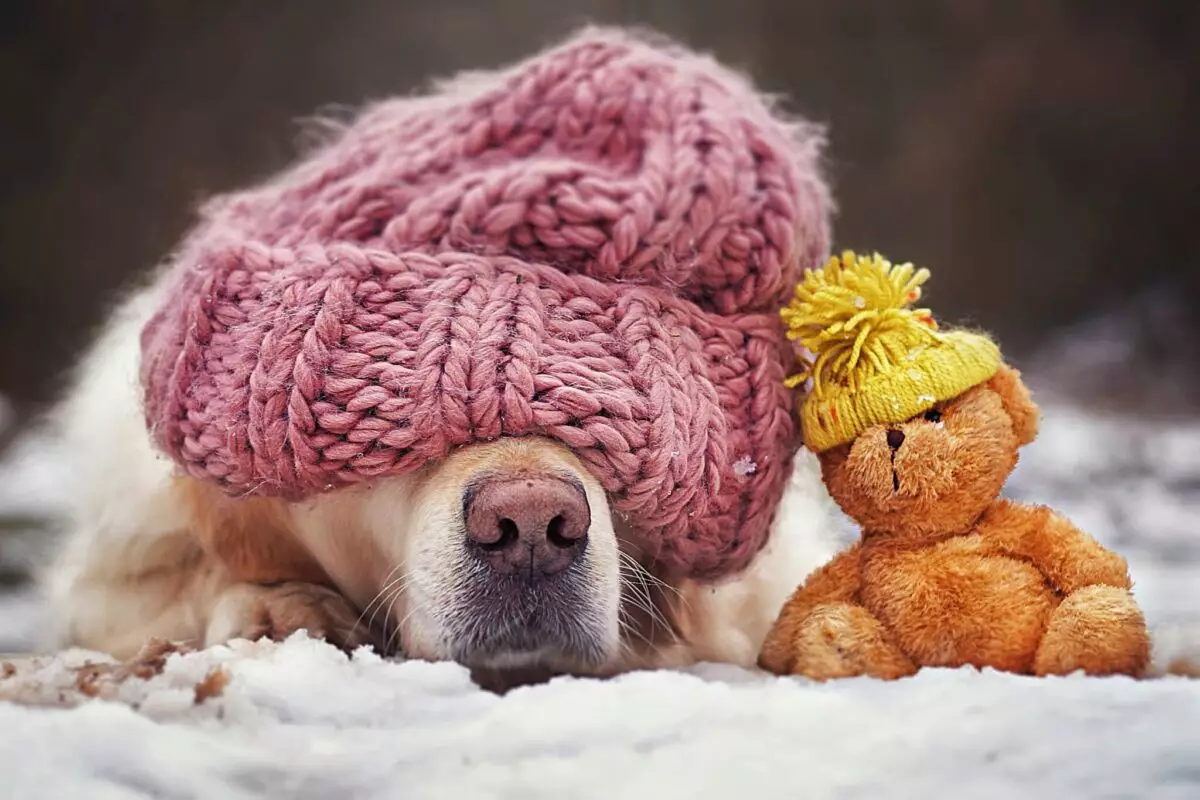As the chill of winter settles in, pet owners need to adjust their care strategies, particularly for senior dogs. Older dogs are more susceptible to the harsh elements, and the drop in temperatures can exacerbate existing health conditions. It’s essential to understand the particular requirements of these beloved companions as winter advances. Below, we will explore practical measures to help ensure the well-being of senior dogs during the colder months.
A fundamental priority during winter is to keep your senior dog warm. Aging pets often experience a diminished ability to regulate their body temperature due to a slower metabolism, reduced muscle mass, and underlying health issues like arthritis. To mitigate the effects of the cold, investing in high-quality pet apparel is crucial. Look for insulated dog coats and sweaters that cover the essential areas, such as the chest and abdomen. Such garments help retain body heat, making outdoor walks more comfortable and enjoyable for your furry friend.
Additionally, providing a warm sleeping environment is vital. Elevated beds are an excellent choice, allowing dogs to stay off cold floors. Opt for orthopedic beds that offer extra support, particularly if your dog suffers from joint pain. Adding blankets and keeping their sleeping area free from drafts can significantly enhance their winter comfort.
Cold weather often leads to increased stiffness in joints, especially in senior dogs already afflicted with osteoarthritis or other mobility issues. Addressing joint health becomes pivotal during winter to maintain their overall quality of life. Consider introducing joint supplements that contain glucosamine, chondroitin, and omega-3 fatty acids. These supplements can help reduce inflammation and support joint mobility, and can be administered as tasty chews or added to their food for easy consumption.
In addition to supplementation, practicing regular massage can significantly improve blood circulation and alleviate discomfort in their joints. Coupled with gentle exercises—like short walks or indoor play—these practices are essential to keep your senior dog active without overexerting them. Swimming, although less accessible in cold months, is a fantastic low-impact option to consider when conditions allow.
Winter can be harsh not only on your dog’s body but also on their paws. Walking on snow, ice, and salt-treated surfaces can lead to cracked or irritated paw pads. To safeguard your dog’s feet, consider using dog booties, which serve as a protective barrier against harsh elements. If your dog is initially resistant to booties, introduce them gradually to help them acclimate.
Moreover, applying a paw balm before and after walks can prevent dryness and cracking. Be sure to select natural and non-toxic balms, ensuring they are safe in case your dog licks their paws. After each walk, inspect your dog’s paws for any signs of irritation or debris that might be stuck between their toes. Regular checks can help prevent infections or injuries caused by concealed irritants.
With the arrival of winter, a senior dog’s dietary needs often shift. Their level of activity might decrease, leading to potential weight gain, which can further stress their joints and worsen existing health conditions. Transitioning to high-quality, senior-specific dog food ensures they receive the essential nutrients necessary for their age. Look for food items rich in antioxidants, vitamins, and minerals, as these can promote overall health and bolster their immune systems.
It’s also vital to monitor hydration, as indoor heating can dry the air and reduce your dog’s water intake. Always provide access to fresh water, and consider incorporating wet food to enhance their fluid consumption. Adequate hydration is crucial for senior dogs, especially during drier winter months.
Regular veterinary check-ups become increasingly important as your dog ages, particularly before winter begins. Schedule a visit to discuss any concerns related to the chilly season—whether it’s mobility, appetite changes, or skin conditions. Your vet can offer tailored advice based on your dog’s health status and may suggest adjustments to their care regimen, including vaccinations and parasite prevention.
Don’t forget that some parasites can survive indoors, making it crucial to maintain a comprehensive preventive care strategy even during winter. Staying updated on vaccinations safeguards your senior dog from illnesses that could potentially arise, even in the chilly months.
Winter should be a season of comfort and joy for your senior dog rather than a time of discomfort. By taking decisive steps—such as providing warmth and appropriate nutrition, safeguarding their joints and paws, and maintaining regular veterinary care—you can significantly improve their quality of life during the colder weather. Every dog has unique needs, and a little extra effort on your part will go a long way in ensuring your senior dog’s health and happiness throughout the winter months. With love, attention, and consideration, your senior dog can not only survive winter but also thrive during it.

